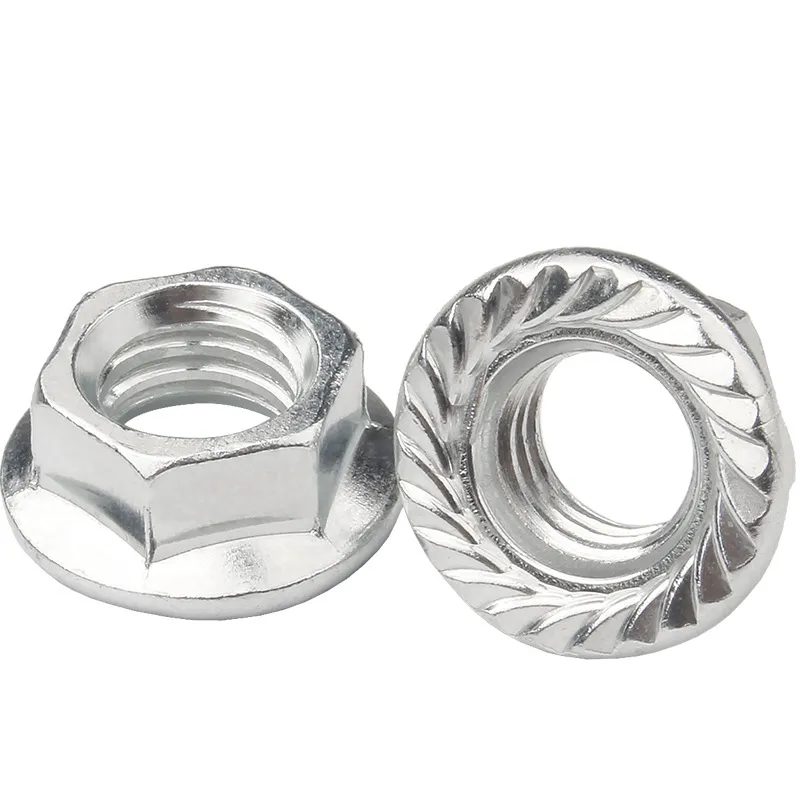

Understanding the Importance of Flange Wheel Nuts in Automotive Wheel Assembly and Safety
Aug . 10, 2024 08:55 Back to list
Understanding the Importance of Flange Wheel Nuts in Automotive Wheel Assembly and Safety
Understanding Flange Wheel Nuts A Comprehensive Guide
Flange wheel nuts are a critical component in the automotive industry, designed to securely fasten wheels to vehicles. Their unique design and functionality distinguish them from traditional hex nuts, making them an essential part of modern automotive engineering.
What is a Flange Wheel Nut?
A flange wheel nut is a nut that features a wide rim or flange at one end. This flange provides a larger surface area for load distribution when the nut is tightened against a wheel. The design of the flange helps to prevent the nut from loosening due to vibrations, which is a common issue in vehicles subjected to dynamic forces. In addition, the flange helps to keep debris and moisture away from the threads of the bolt, thus reducing the risk of corrosion and wear.
Material and Design
Flange wheel nuts are typically made from high-strength materials such as carbon steel or stainless steel, which provide durability and resistance to deformation under load. Some manufacturers apply coatings to these nuts to enhance their corrosion resistance and overall appearance. The design may also include features such as anti-theft mechanisms, where the nut is shaped in a specific way that only allows it to be tightened or loosened with a unique tool.
Applications
Flange wheel nuts are used in various applications beyond automobiles, including motorcycles, trucks, and trailers. Their ability to provide a strong connection makes them ideal for any situation where wheels need to be securely attached to a vehicle. In racing environments, where high speeds and quick stops are common, the reliability of flange wheel nuts becomes even more critical for safety.
flange wheel nut

Installation and Maintenance
Proper installation of flange wheel nuts is vital for ensuring safety. It is recommended to use a torque wrench to apply the appropriate amount of tightness, which is often specified by the vehicle manufacturer. Over-tightening can lead to stripping the threads, while under-tightening can lead to the nut loosening significantly.
Regular maintenance checks are also essential. Mechanics often recommend inspecting the condition of flange nuts during routine vehicle service to ensure there are no signs of wear or corrosion. If any issues are detected, replacing the nuts promptly can help prevent any problems while driving.
Advantages of Flange Wheel Nuts
1. Enhanced Load Distribution The flange design offers superior load distribution, improving the overall stability of the wheel. 2. Reduced Risk of Loosening The wide surface area minimizes the chances of the nut loosening due to vibrations, a common issue on the road. 3. Corrosion Resistance Many flange wheel nuts come with protective coatings, ensuring longevity and reliability even in harsh conditions. 4. Ease of Installation The design allows for quicker installation and removal, often requiring less time than standard nuts.
Conclusion
Flange wheel nuts play an indispensable role in the safety and performance of vehicles. Their design enhances security, durability, and ease of maintenance, making them a preferred choice among manufacturers and mechanics alike. Understanding their function and proper maintenance is crucial for every vehicle owner, ensuring that their transportation remains safe and dependable on the road. As automotive technology continues to evolve, the design and application of flange wheel nuts will undoubtedly adapt, promising even greater reliability and performance in the years to come.
Latest news
-
High-Strength Hot Dip Galvanized Bolts - Hebei Longze | Corrosion Resistance, Customization
NewsJul.30,2025
-
Hot Dip Galvanized Bolts-Hebei Longze|Corrosion Resistance&High Strength
NewsJul.30,2025
-
High-Strength Hot-Dip Galvanized Bolts-Hebei Longze|Corrosion Resistance&High Strength
NewsJul.30,2025
-
Hot Dip Galvanized Bolts-Hebei Longze|Corrosion Resistance&High Strength
NewsJul.30,2025
-
Hot Dip Galvanized Bolts - Hebei Longze | Corrosion Resistance, High Strength
NewsJul.30,2025
-
High-Strength Hot Dip Galvanized Bolts-Hebei Longze|Corrosion Resistance, Grade 8.8
NewsJul.30,2025

